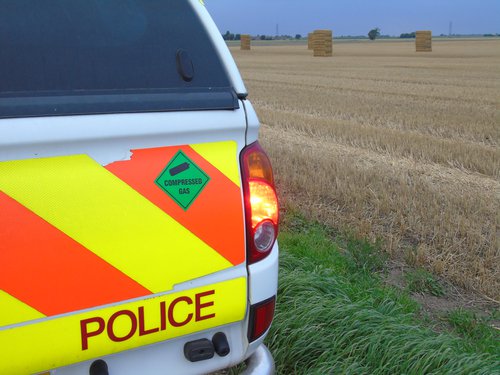Preventing rural crime
CLA South West Rural Surveyor Claire Wright offers tips to prevent members becoming victims of rural crime
Times of economic uncertainty and the rising cost of living have always tended to see a directly proportional rise in levels of crime. This is something that affects rural communities as much, if not more, than their urban counterparts. Now police are warning rural residents and businesses to take action to ensure that they are less vulnerable to such criminality.
Trailers, plant and machinery are the most likely items to be stolen from farms but with living costs soaring, it is no surprise that thefts of diesel and heating oil are also climbing. We have also seen the recent theft in Dorset of a load of liquid fertilizer, and there are fears that other items could soon be targeted by thieves.
The agricultural machinery industry is expecting further supply chain issues caused by the lingering effect of Covid-19 on staffing, the shortage of shipping containers and restrictions on raw materials as a result of the conflict in Ukraine. Manufacturers are warning of a risk that they will not be able to deliver orders in a timely fashion which means that tractors, telehandlers and quad bikes will all be in high demand across the whole sector. But small tools will also be vulnerable to theft. Farms will need to be extra vigilant to ensure their valued equipment doesn’t end up in the hands of those seeking to turn a quick profit by selling it onwards.
Ways to keep your vehicles and tools safe from thieves include fitting recognised tracking devices; storing machinery in locked outbuildings or containers when not in use, securing quadbikes and other ATVs with fixed ground anchors and appropriate security chains and padlocks. Keys should be stored in a dedicated key safe and pin codes to operate vehicle systems should be changed from the default setting. Trailers should be fitted with a wheel clamp and a hitch lock. GPS units should also be removed from vehicles when not in use.
Finally, you should be ensuring that all serial numbers, makes and models are recorded and that every item from the combine harvester to the chainsaw has been photographed (this will help you be reunited with your property if it is stolen). For ease you can use the online National Property Register.
There is also a fear that livestock rustling and poaching offences could rise on the back of soaring food prices. Although rustling offences fell by 5.5% last year there is a real risk that rising meat prices and a squeeze on consumer spending could fuel renewed levels of this criminality.
To avoid your livestock being stolen, you should regularly check your herds and flocks but ensure you vary your routine visits to fields. If it is possible, graze animals away from roadside fields and/or consider using some of the rapidly advancing technology such as gate sensors to protect them. Needless to say, your stock should be tagged and all records kept current.
On other side of this coin, tightening margins in farming and businesses coming under financial pressure mean there can be a heightened risk of rural business owners becoming the victim of scams. In the recent past, this has included payment for storing bales that later turns out to contain waste, which costs the landowner to dispose of; fraudulent texts purporting to be from the RPA or fake adverts/websites offering equipment at prices that seem too good to be true. More information on staying safe from this sort of crime can be found at here.
You can lessen your chances of being a victim of crime by joining your local Farm Watch or Countryside Watch scheme. Many of these are free to sign up to and aim to raise awareness of incidents happening locally so that rural businesses can take action to deter criminals from targeting their premises.
Remember that if there is a crime in progress on your farm then you should report it immediately to 999; to share information after a theft has taken place then you can report online or via 101.
